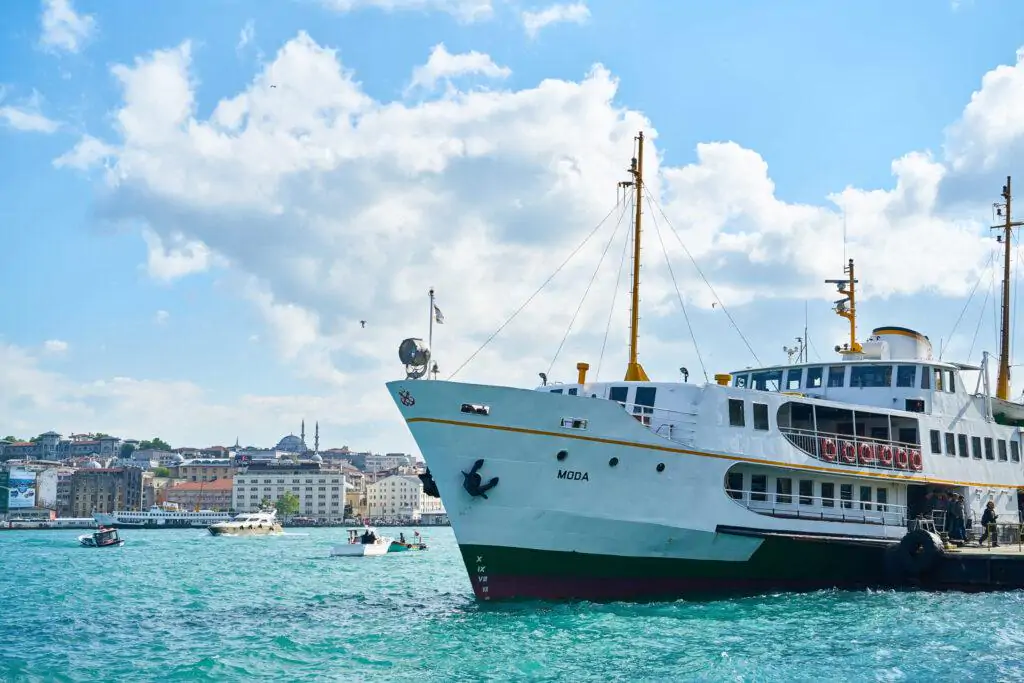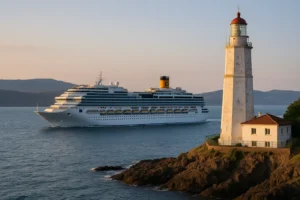
The Strategic Importance of the Bosphorus: History Seen from the Water
The Bosporus Strait is one of the most important waterways in the world. At 31 kilometers long, it separates Europe from Asia, connecting the Black Sea with the Sea of Marmara. Throughout history, it has been a crossroads of trade, culture, and power. Today, visitors can experience its importance firsthand on a Bosphorus cruise in Istanbul. From the water, the history and strategy of this unique passage come to life.
A Waterway Shaping Empires
The Bosphorus has been fundamental to the rise and survival of great empires. The ancient Greeks, Byzantines, and Ottomans recognized its value. Control of the strait meant control of trade routes and military access between seas.
When Constantine established Constantinople as the capital of the Byzantine Empire, the Bosphorus became the lifeline of the city. Centuries later, the Ottomans fortified its shores with castles such as the Rumeli Fortress to secure their dominance.
You can read more about the global role of the Bosphorus Strait on Wikipedia.
A Trade Route Between Continents
The Bosphorus connects two continents—Europe and Asia—and has always been a vital trade route. Spices, silk, and grain traveled through these waters to European markets. Today, modern cargo ships continue to sail through the same passage, demonstrating the importance of the strait.
A cruise allows visitors to imagine how ancient merchants sailed these waters, transporting goods that drove economies and connected civilizations.
Military and Strategic Power
The strait has also played a key role in military history. Fortresses such as Rumeli Fortress and Anadolu Fortress were built to control naval access and defend the city. The Bosphorus was a crucial line of defense for both Byzantium and the Ottoman Empire.
Even in modern times, the Bosphorus remains strategically important. Control of the strait is still vital for naval access between the Black Sea and the Mediterranean.
Cultural Exchange Along the Shores
Beyond its military and economic value, the Bosphorus has been a cultural meeting point. Palaces, mosques, and mansions along the Bosphorus reflect centuries of fusion of traditions. Dolmabahce Palace, Ortakoy Mosque, and the wooden yali mansions tell stories of life shaped by the strait.
On a cruise along the Bosphorus, passengers discover how history and culture coexist along the coast, making it one of the most unique cultural landscapes in the world.
The Bosphorus in Modern Istanbul
Today, the Bosphorus remains essential to Istanbul. Thousands of passengers are transported daily by ferries, while international ships continue to pass through it. Bridges and tunnels now connect the continents, but the waterway remains the heart of the city.
For visitors, a cruise offers much more than sightseeing: it provides an understanding of the city’s identity as a bridge between East and West. For more information on reservations and tour options, visit Our Experience page.
Landmarks that Reflect Strategy
Several landmarks visible on a cruise highlight the Bosphorus’s strategic role:
-
Rumeli Fortress – Built in 1452 by Sultan Mehmed II before the conquest of Constantinople.
-
Maiden’s Tower – A small islet that has served as a lighthouse and watchtower.
-
Bosphorus Bridges – Modern symbols of connection between Europe and Asia.
-
Dolmabahce Palace – A reminder of Ottoman power and influence along the water.
Each landmark connects the visitor to centuries of strategy, culture, and survival.
Why a Cruise Brings History Alive
Seeing the Bosphorus from the water is the best way to understand its importance. From the deck of a boat, you can follow the same routes that merchants, soldiers, and rulers have followed over the centuries. The combination of natural beauty, architecture, and history makes a cruise on the Bosphorus one of the most meaningful experiences in Istanbul.
Conclusion
The strategic importance of the Bosphorus has shaped the fate of empires and continues to influence global trade and politics today. From ancient fortresses to modern bridges, the strait tells a story of power, culture, and connection. A cruise on the Bosphorus in Istanbul is not only a scenic journey but also a history lesson seen from the water.
Plan your cruise today and discover why the Bosphorus remains one of the world’s most important waterways.

